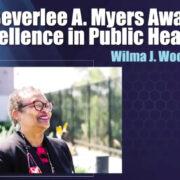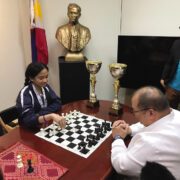The cultures of corruption and of violence in society are close cousins, if not twins. They are intertwined. Where there is corruption, there is violence, and vice versa. Violence is a symptom of a corrupt mind, and corruption is violence against fellow human beings and society.
On August 23, 2010, the whole world was watching the televised nine-hour hostage drama in Manila Park, where former police senior inspector Rolando Mendoza, expelled from the force apparently on drug-related extortion and brutality charges in 2008, took hostage a bus with 22 Hong Kong tourists and 3 Filipinos, and murdered eight of the foreign visitors. He was demanding to be reinstated.
While this is an isolated case of a corrupt mind, it is no less violent, compared to other brutalities and killings, even to those committed by terrorists, domestically or internationally.
Are we more violent as a society today? Do video games subliminally brain-wash our young children’s mind as they take pleasure in actively participating in virtual massive killings as an accepted form of entertainment? Do these violent games make these kids take violence and killings, and the Ten Commandments, more lightly?
Studies have shown that watching educational and socially interactive children’s shows on television have a positive impact on these children, not only in learning arithmetic or science but in social behavior, humanity, compassion, honesty and responsibility.
On the other end of the spectrum, young boys and girls alike, who watch violence on television have increased risk of aggression, including spousal abuse and criminal offenses as adults. Violence on any media adversely affects children’s lives by eroding into their inborn and natural aversion to violence, making aggression, violence, and in many cases, crime as acceptable social behaviors for them when dealing with their family and the public.
Adults are not immune to these negative effects. Most of us have heard the “F” word mentioned so many times in one sentence in western shows and simply laugh at it. Some of us Filipinos, including women, have even acquired this cursing habit too casually, although some mispronounce the letter “F,” making it doubly embarrassing.
Children learn from what they see and what they hear, at home or in their world outside. They grow up with all those experiences, and they become the summation of what they learn. Whichever predominates rule their future.
We, as parents, have the grave responsibility of protecting our children from any form of harm, including negative influences, and of guiding them to become good, law-abiding, honest, productive, and compassionate citizens, making them a credit to society and to the human race as a whole.
Drinking and blood pressure
Mix binge drinking and high blood pressure and you get a cocktail of medical conditions that shorten longevity. Indeed, binge drinking among those with hypertension increases the risk of death, compared to those persons with normal blood pressure. A lot of alcohol and high blood pressure are a lethal mix.
Binge drinking, which is a major public health issue, is defined as consuming a large amount of alcoholic drink in one single session. While it is a serious health problem, many drinkers are ignorant of the risks. Alcohol poisoning from binge drinking is not rare.
Published in STROKE: Journal of the American Heart Association, the South Korean study involving 6,100 subjects over twenty years found that “compared to people with normal blood pressure who did not drink, the risk of cardiovascular death in men, with high blood pressure was three times higher in general; four times higher if they consumed at least six drinks in one binge session; 12 times higher if they consumed at least 12 drinks in one binge session.”
The American Heart Association defines moderate drinking as “a maximum of two drinks per day for men and one drink per day for women…a drink is defined as a 12-ounce beer, one 4-ounce glass of wine, 1.5 ounces of 80-proof spirits or one ounce of 100-proof spirits.”
When gambling hurts
Gambling as an entertainment has been with us even before civilization started. Cavemen had their own version of gambling. Casinos have spread all over the United States, a few in the Philippines, many in Macao, Monaco, and other countries. Today, we even have online gambling, internet betting where one uses credit cards to purchase chips.
Gambling at home (mahjong, poker, blackjack, bingo, etc.) for charity or not, or gambling in casinos, for fun, with discipline and limitations in terms of amount and time, can be refreshing, especially with friends. But uncontrolled frequent gambling, even at home with friends, especially with high stakes (no longer penny-ante friendly wager), is addictive gambling no less.
When one is helplessly hooked on gambling, a so-called “hidden illness,” which the sufferer may not even realize, or has self-denial about it, or actually covering it up because of shame, then the fun has long stopped, and the stage of addiction has set in. Many obsessive gamblers are also alcoholics, where weakness in the character appears to play a role, according to psychotherapists.
The strong uncontrollable urge to gamble dominates the victim, up to the point of giving up food, sleep, personal grooming, his job, his social life, and neglecting his family, in favor of gambling. Since habitual gambling is a losing game and a game of losers, soon the victim parts with all his money, his property, his self-respect, his friends, even his family. As the stress escalates, he resorts to more gambling in his desire to chase (or win back) his loses. So, he goes deeper and deeper, in financial and emotional bankruptcy. Not a few of them ended up killing themselves, like a couple of physicians I have heard of.
Some of the signs and symptoms include changes of personality, attention, and responsibility; losing time from work or school; borrowing money or pawning or selling personal possessions; lying about amount and time wasted on gambling; gambling to escape problems; and having a sense of fear, depression, frustration, anger, hopelessness, and suicidal tendencies.
Addictive gambling is a disease, and like other illnesses, it could benefit from early attention, diagnosis, and prompt treatment. There are centers and support groups, which can help. Taking this wise and prudent step towards healing is one gamble the victim can bet on with his life, and usually win big!
***
Philip S. Chua, MD, FACS, FPCS, Cardiac Surgeon Emeritus in Northwest Indiana and chairman of cardiac surgery from 1997 to 2010 at Cebu Doctors University Hospital, where he holds the title of Physician Emeritus in Surgery, is based in Las Vegas, Nevada. He is a Fellow of the American College of Surgeons, the Philippine College of Surgeons, and the Denton A. Cooley Cardiovascular Surgical Society. He is the chairman of the Filipino United Network – USA, a 501(c)(3) humanitarian foundation in the United States. Email:[email protected]





